Kaitlyn Bonsall | Contributing Writer
This article, survey, and results was created for First Amendment Week on behalf of my Media: Legal and Ethical Perspectives class. An event had to be created that showcased awareness for the First Amendment. This survey was created using 100 anonymous, random students across campus and was IRB/IACUC approved. It was created based on the State of the First Amendment Survey that is distributed nationally. This holds importance because what Americans, and students in this case, know about their First Amendment rights, can reflect on if they are learning about these freedoms or not, and the fact is that they should be, just like those that are forced to just to get into this country. Gene Policinski, Senior Vice President and Executive Director of the First Amendment Center commented on the 2014 State of the First Amendment Survey saying, “Perhaps that’s why 29% of respondents to the 2014 State of the First Amendment survey, released today, couldn’t name one [First Amendment right]— they don’t have to. Those of us living in the U.S. enjoy its protection of our core freedoms by virtue of living here”. College students are preparing to go into the world on their own and need to be able to form their opinions which relates heavily to being aware of their First Amendment rights. Supreme Court Justice, Thurgood Marshall had commented on the State of the First Amendment Survey saying, “The First Amendment serves not only the needs of the polity but also those of the human spirit — a spirit that demands self-expression. Such expression is an integral part of the development of ideas and a sense of identity”.
The State of the First Amendment Survey has been continued yearly since 1997 to see how Americans feel and what they think about their first amendment freedoms of speech, religion, petition, assembly and press as well as some contemporary issues involving those freedoms (First Amendment Center). Some of the questions in this survey were taken directly from the 14th State of the First Amendment Survey as some questions are changed yearly. The questions used include finding how many people (from this surveyed campus) know the freedoms of the First Amendment, if they feel the First Amendment goes too far in the rights it guarantees, if they think the news media tries to report without bias, if they think that the news media should act as a watchdog for government, if defamatory comments on social media should have the same consequences as those made on TV or in print and where they get most of their news.
Other questions were added based on specific social issues that have or could happen on college campuses and to college students. Such questions deal with the first amendment pertaining to Buena Vista University as a private college. The First Amendment is only applicable to government entities. Buena Vista University, being a private school and not government funded, is therefore not covered by the First Amendment. Buena Vista does, however, try to treat campus media as if the First Amendment does apply which is quite unique among private schools.
http://www.firstamendmentcenter.org/sofa
Question: Can BVU legally censor student press and speech- Yes? Or No?
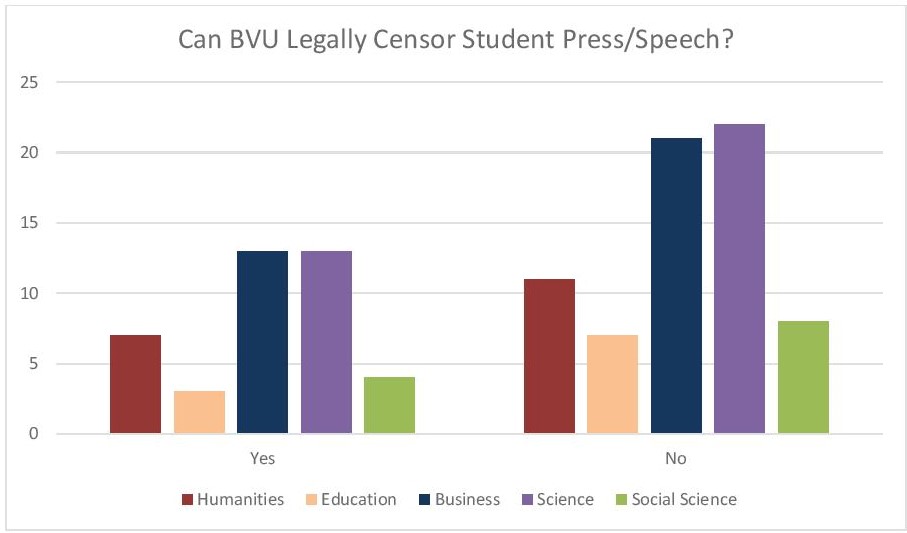
Majority of all Major affiliations said that BVU could not legally censor student press and speech.
All students need to learn and be aware of these rights that they are given, because they are what lie at the core of our society and will help shape future opinions and lifestyles as students go into the world.
Question: Can you name any of the specific rights that are guaranteed by the First Amendment?
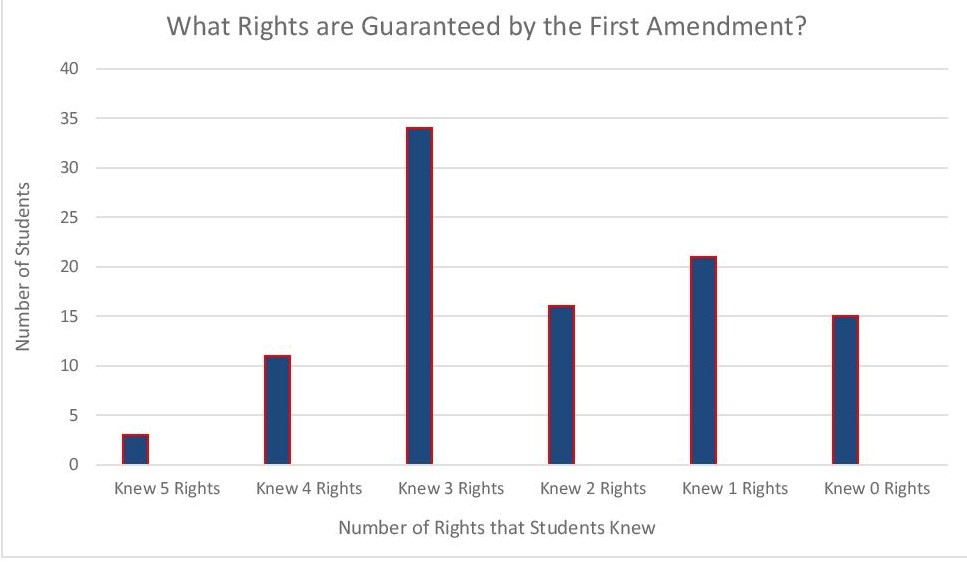
Out of 100 randomly surveyed students, only 14 knew four to five freedoms or rights guaranteed by the First Amendment. Only three of those students knew all five freedoms. Fifteen students could not name any of the freedoms guaranteed by the First Amendment. Freedom of speech was most well-known, while freedom to petition and freedom of assembly were the least known.
Out of the 100 randomly surveyed students, there were 42 freshmen, 32 sophomores, 15 juniors, and 11 seniors. Of the 14 that knew 4-5 freedoms, none were seniors and most were freshman. Of those that knew 4-5 freedoms, commonalities between the 14 were that they were from public high schools as well as an association with a humanities major.
This raises the questions if public high schools provide more civic information because they are public and government funded, if humanities majors focus on the amendments and our rights more than other majors, if other majors need to include more of a focus on this in their curriculums, or if incoming freshman are aware and by the time they are seniors tend to forget?
Question: College media students should have the same freedoms to exercise their First Amendment rights as do media professionals-Agree? Or Disagree?
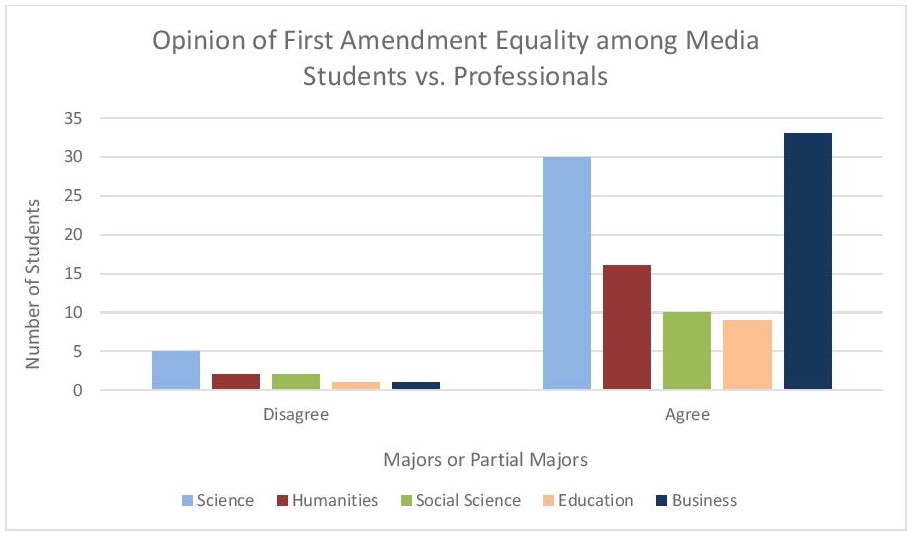
Majority of affiliations with all majors agree that media students should have the same freedoms to use their First Amendment rights as media professionals.
Question: The news media tries to report the news without bias- Agree? Or Disagree?
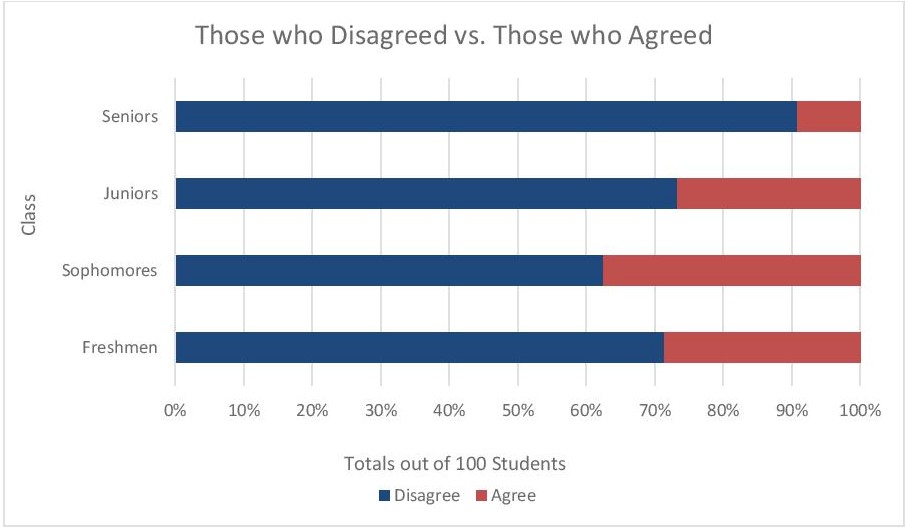
Out of those who agreed and those who disagreed, over half of both categories said they get most of their news from the internet while the secondary choice for both who agreed and disagreed was television, so there was no difference between news sources. This is a very important question and reaction from students to see that so many of every class disagree with this statement. Why do students not trust their news? They should be able to trust and rely on news media to report without bias and to give them all of the facts. Students are the ones forming opinions about the world currently and about to go out into the world to deal with issues and politics on their own; therefore, the perception of lack of news credibility is a serious issue.
Question: Someone who makes defamatory comments on social media sites such as Facebook should be subject to the same legal consequences as someone who makes a defamatory comment on TV or in print- Strongly agree? Mildly agree? Mildly disagree? Strongly disagree? Or don’t know?
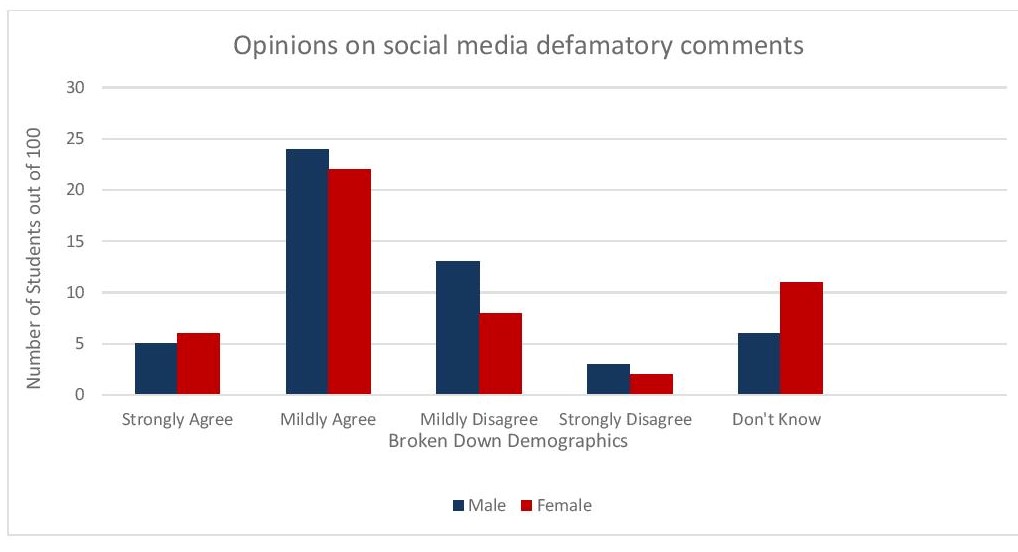
In general, more females agreed and more males disagreed, but not to such an extent to really make any conclusions bases upon it. Most, 46, of the 100 surveyed, did mildly agree that those who make defamatory comments on social media should be subject to the same disciplinary action and consequences as those that make defamatory comments on TV or in print.
Question: Should BVU block a social media site that allows its users to post anonymously if there is a history of cyber-bullying and harassment on the site- Yes? Or no?
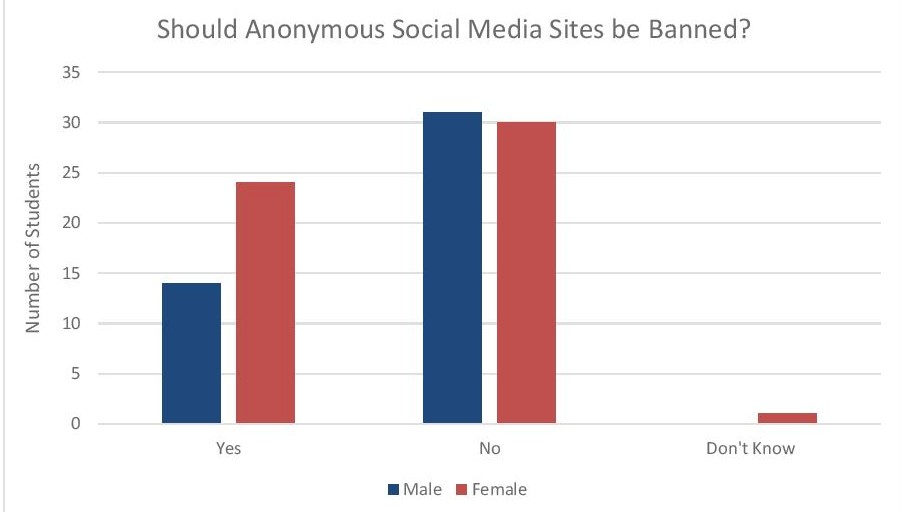
Sixty-one of the 100 surveyed students said “No”, that BVU should not block a social media site that allows anonymous posts even if it has a history of cyber-bullying and harassment. This raises the questions if people feel this way because otherwise they would feel like their freedom of speech was being restrained?
Question: If a student makes a very racist video on campus and it goes viral, should university officials expel that student?
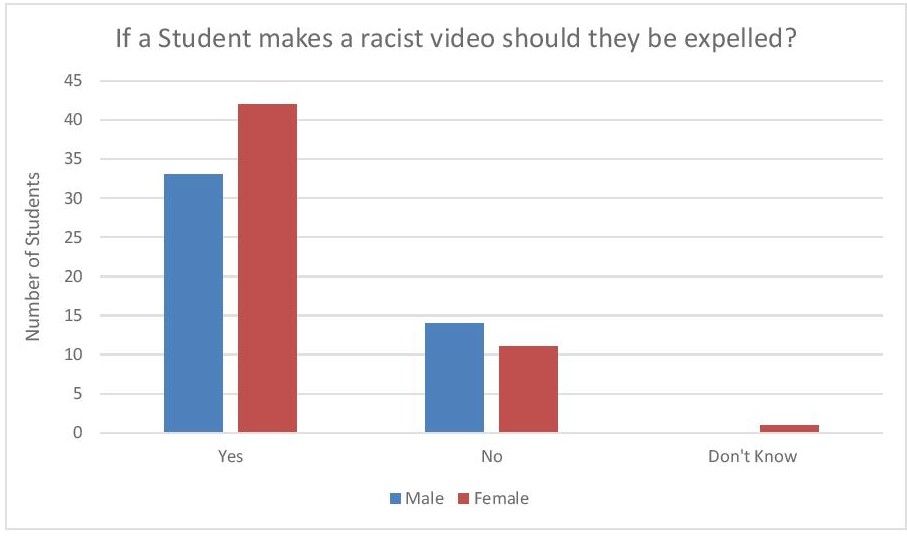
This was a somewhat similar question as to the previous question of if BVU should ban anonymous social media sites with histories of harassment. On the contrary, majority of the 100 students surveyed said yes, that a student should be expelled for producing a racist video on campus, but the majority of those same 100 students said no, that BVU should not be able to censor anonymous posting sites with harassment histories. Is this because campus students use social media sites more and that racism is held to a much higher standard than what people think happens on anonymous social posting sites?
Visuals by Kaitlyn Bonsall



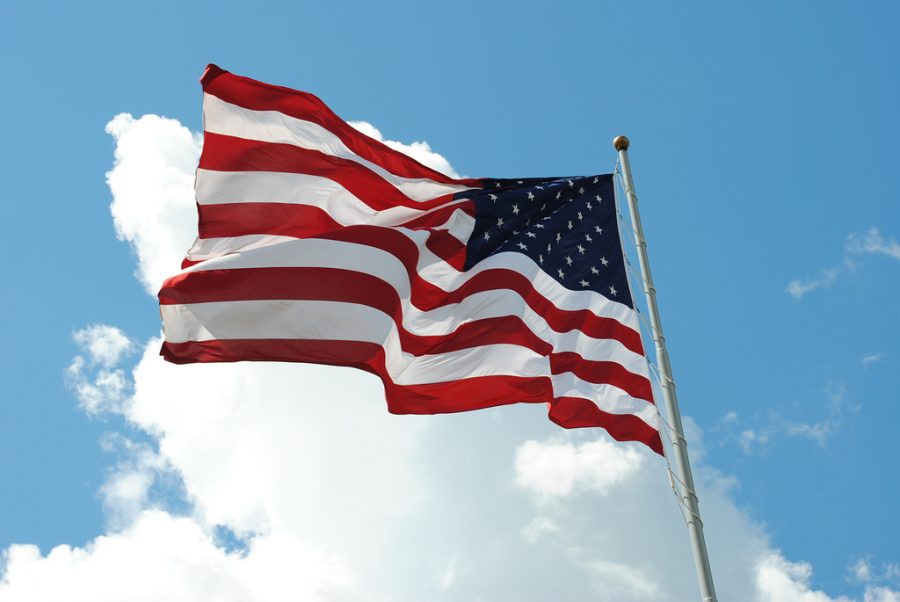
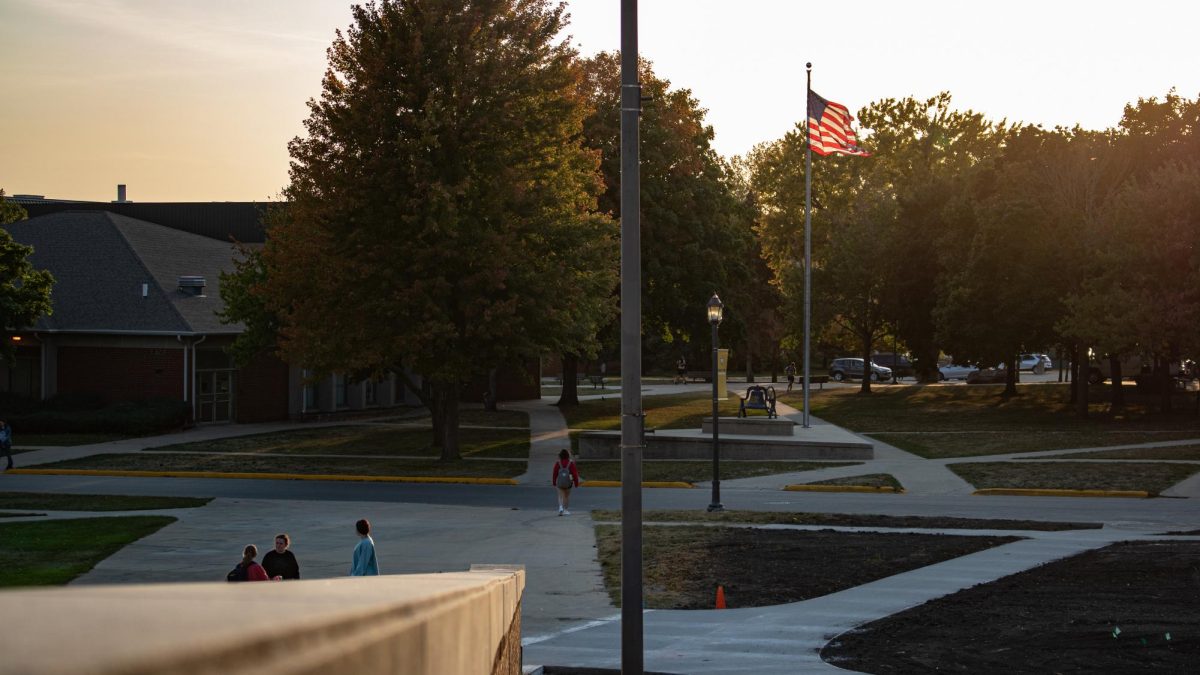

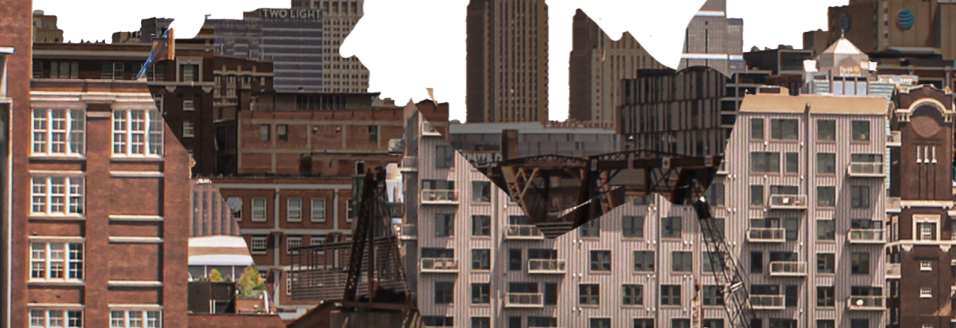
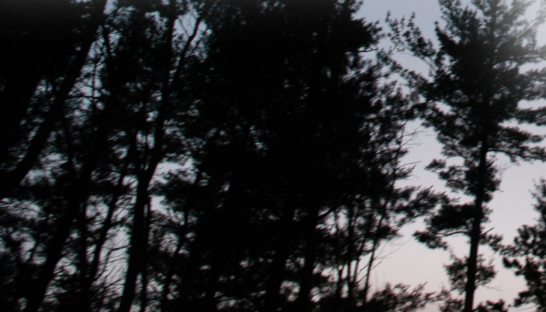
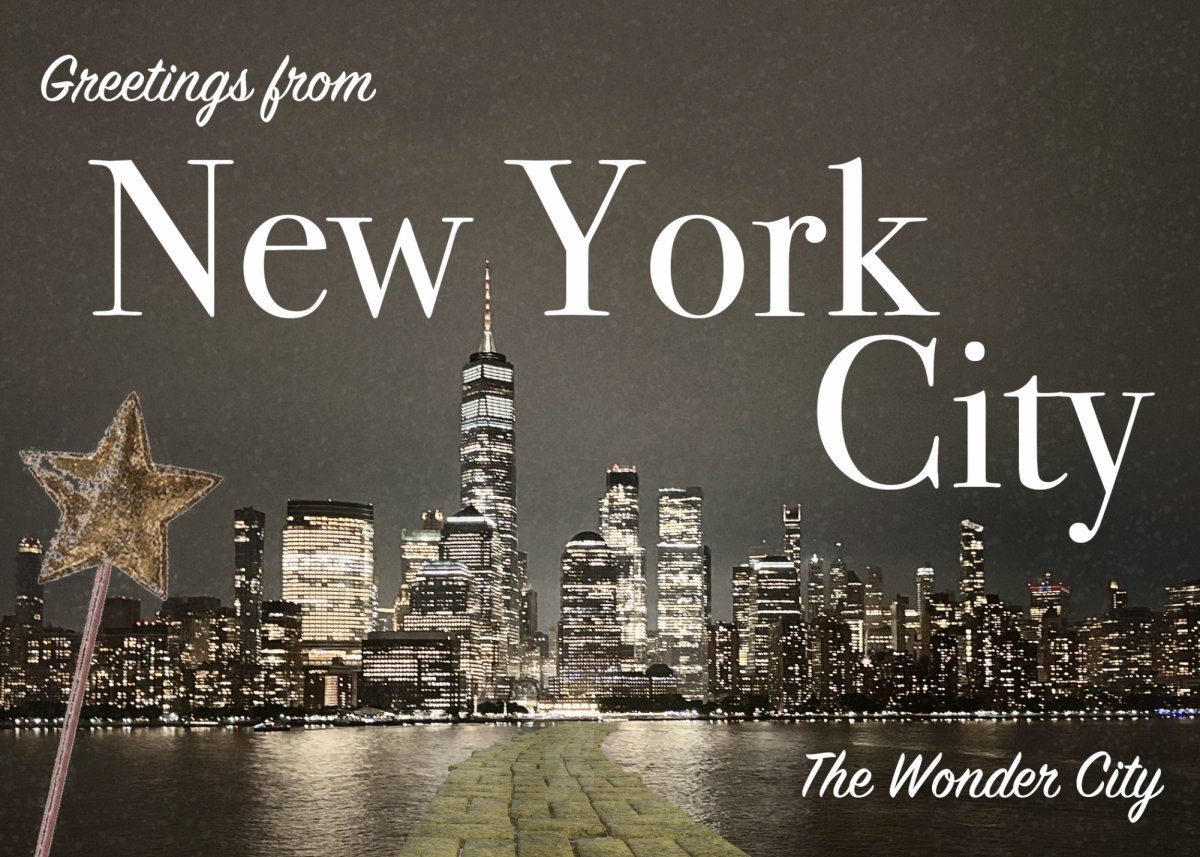

Pongo • May 5, 2015 at 3:59 pm
This was above average